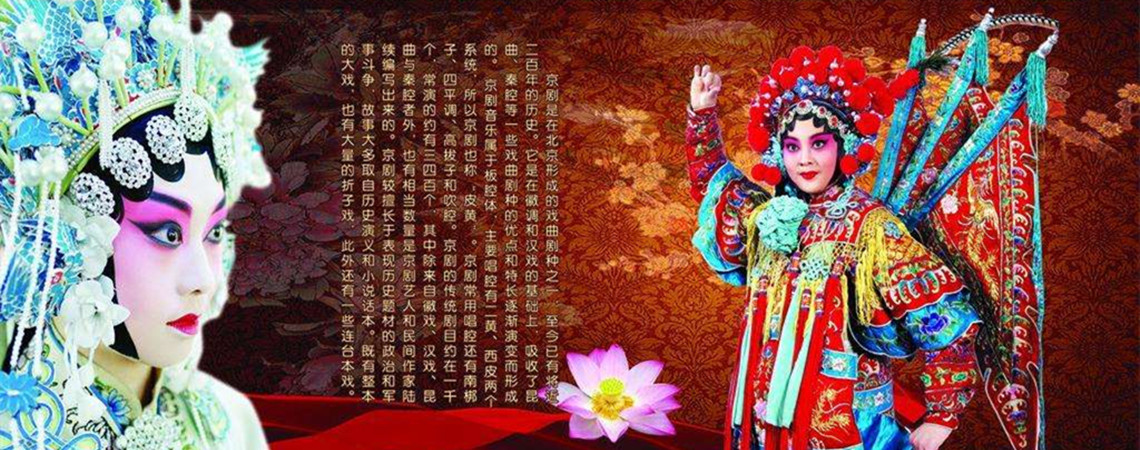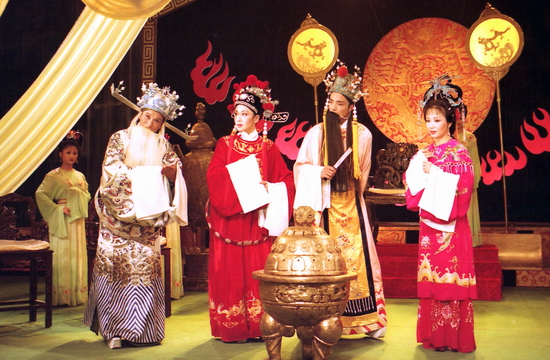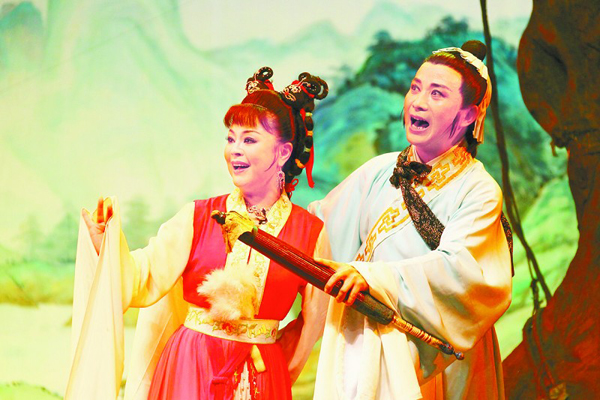Skype: neodalle-travel
Tel: +86 135 7447 2266
E-mail: sales@visitaroundchina.com

Huangmei Opera was derived from "Caicha Tune", the folk ditties people sang while picking tea. It is a combination of local folk songs, dances and some widespread ancient operas. Bordering on Anhui Province, Huangmei County in Hubei Province is famous for its tea and tea-picking songs; it is also where Huangmei Opera got its original name—"Caicha Opera" ("tea-picking opera").
Before 1949, rivers and lakes in Anhui Province were often flooded and the displaced victims had to seek refuge in neighboring provinces. As a result, Huangmei Opera of Hubei Province was brought to Anhui by victims of flood and famine.
The performers of Huangmei Opera infuse simple humor into all of the 72 short plays and 36 full-length dramas about the privileged life for a down-to-earth element.

Emperor's Female son-in-law
Since 1949, with support from the Chinese government, Huangmei Opera has blossomed. Some of the famous actors and actresses of Huangmei Opera include Yan Fengying, Wang Shaofang and Pan Jingli.

Story of the Seventh Fairy
The opera has also spread its fame both home and abroad with its sweet melodies and lyrics, graceful sounds and movements, and beautiful costumes and sets. Huangmei fans can be found not only on the Chinese mainland but also in Hong Kong, Macao, Taiwan, Malaysia, Japan, and even Europe.
Originally from Hubei province, Huangmei Opera is transformed in neighboring Anhui Province into a more standard opera, albeit, one with a distinctly non-mainstream style
Huangmei Opera started as a local song-and-dance repertoire in Huangmei County in the tea-growing region of Hubei Province (the same province that gave birth to the Han opera that would join forces with an offshoot kunqu opera group from Anhui Province, famously becoming the Peking Opera) known as Lanyang Plateau, and in roughly the same time period in which Peking Opera was born. The repertoire of Huangmei Opera consisted of the short ditties that were sung by local laborers as an accompaniment to tea picking ("caicha"), which is why Huangmei Opera was also known as "Caicha Opera".
The story goes that before the government of the People's Republic of China came to power, the rivers and lakes of many parts of China, including the region surrounding Huangmei, often burst their banks, causing widespread flooding. It was during one such flooding period that the Huangmei opera troupe ended up in neighboring Anhui Province, where it established itself as a new form of song-and-dance entertainment in the city of Anqing, the then capital of Anhui Privince, albeit, initially only during festivals and on other special occasions, but eventually developing into a somewhat more standard opera with more elaborate costumes and more polished roles for its actors, although, with respect to costumes and role types, Huangmei Opera cannot be compared to more traditional Chinese opera forms (and may not even qualify as xiqu).
The uniqueness of the early Huangmei Opera lay in the fact that its songs were very high-pitched - the singer quickly reached a high pitch and remained there for the duration - a feature which put exceptional demands on the performers, since not everyone is capable of such sustained, high-pitch performances. The uniqueness of Huangmei Opera's caicha tunes set this opera style distinctly apart from all other extant Chinese opera styles of the period. Huangmei Opera, like nanxi opera before it, was truly a folk opera, performed by and for ordinary people. The short operas often obliquely poked fun at the upper classes by portraying the "problems" faced by the privileged, which "problems" were of course of a completely different caliber than the stark, existential problems faced by ordinary people.
Huangmei Opera has continued to define itself in a separate category compared to mainstream Chinese opera. Accordingly, the "costumes" seen at Huangmei Opera performances today might resemble the everyday dress of a simple housewife, a factory worker, or a secretary. The emphasis is on the acting/ singing and the music - and here the genres are much more wide-ranging than in traditional Chinese opera - rather than on the visual impact. Moreover, during the first ever China Shakespeare Festival in 1986, the Anhui Provincial Huangmei Opera Troupe staged a Chinese adaptation of Shakespeare's Much Ado about Nothing.
 Ask Questions ?
Ask Questions ?